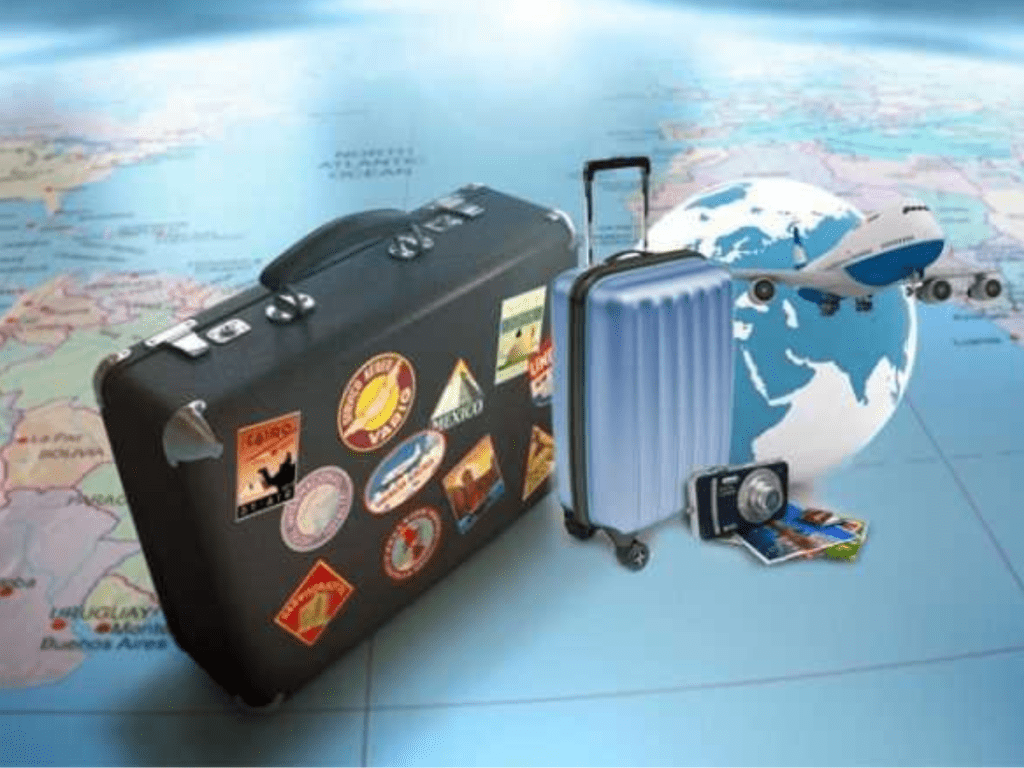Introduction
When planning a cruise vacation, most passengers focus on the excitement of exploring new destinations, enjoying onboard activities, and indulging in luxury services. However, while cruising offers a fantastic experience, it also presents certain risks, which is why cruise travel insurance has become an essential consideration for many travelers. Travel insurance for cruise passengers is designed to provide protection against unforeseen circumstances that could disrupt your journey, from health emergencies to trip cancellations and missed connections. In this comprehensive guide, we’ll take a deep dive into what’s covered by cruise travel insurance and why it’s worth considering for your next adventure.
Understanding Travel Insurance for Cruise Passengers
Travel insurance for cruise passengers is a specialized form of travel coverage that caters specifically to the unique aspects of cruising. This type of insurance not only covers general travel risks like flight cancellations or lost baggage but also addresses cruise-specific situations, such as trip interruptions caused by inclement weather, missed port departures, or medical emergencies aboard the ship.
Typically, a cruise travel insurance policy can include several components, and the coverage options depend on the policy you choose. Some policies offer basic protection, while others provide more extensive coverage that includes trip cancellation, medical emergencies, evacuation, and much more.
Types of Coverage Offered by Cruise Travel Insurance
Cruise travel insurance generally includes a combination of the following coverage options. It’s essential to understand each of them so you can select a policy that fits your needs.
1. Trip Cancellation Coverage
Trip cancellation insurance is one of the most important aspects of travel insurance for cruise passengers. It reimburses you for prepaid, non-refundable expenses if you need to cancel your trip due to an unforeseen event, such as a sudden illness, death in the family, or a natural disaster. For example, if a close relative falls critically ill before you leave for your cruise, this coverage can help you recover the money spent on the cruise fare, flights, hotel accommodations, and other non-refundable expenses.
Common events that may trigger trip cancellation coverage include:
- Unexpected medical emergencies.
- Illness or death of a family member or travel companion.
- Natural disasters, such as hurricanes or wildfires.
- Unforeseen work obligations or family emergencies.
It’s important to check the policy’s fine print to ensure that the reason for cancellation is covered, as some policies may have exclusions related to pre-existing medical conditions or specific causes like political unrest.
2. Trip Interruption Coverage
Trip interruption coverage is often included in cruise travel insurance policies and helps cover the costs if you have to cut your trip short and return home earlier than planned. This may happen for various reasons, such as a medical emergency, natural disaster, or an urgent family matter.
For example, if you have to leave the cruise mid-trip because of a sudden illness, this coverage could reimburse you for the unused portion of your cruise fare and any additional expenses for getting back home, such as last-minute flights or alternative travel arrangements.
This type of insurance ensures you don’t lose out financially if you have to cut your vacation short, which is a crucial benefit for cruise passengers who’ve already paid for a significant part of their trip upfront.
3. Medical Coverage
Cruise ships are equipped with medical facilities and staff, but they often cannot provide the same level of care as a hospital on land. Medical coverage is essential if you become ill or injured during your cruise. It covers medical expenses such as doctor’s visits, hospital stays, and prescription medications. It can also cover medical evacuation if necessary, particularly if the ship is far from land or lacks the necessary medical facilities.
Some of the key benefits of medical coverage include:
- Coverage for doctor visits, medications, and hospital stays.
- Emergency evacuation if you need to be transported to a medical facility on land.
- Emergency dental care if required while on the cruise.
- Coverage for repatriation, which involves returning your body to your home country in the event of death during the trip.
It’s important to note that not all travel insurance policies include medical coverage, so you should always verify that it is included or purchase additional coverage if needed. Furthermore, your standard health insurance may not provide adequate coverage while you are traveling abroad, making specialized cruise insurance even more valuable.
4. Emergency Medical Evacuation
Emergency medical evacuation coverage is crucial for cruise passengers traveling in remote or international waters, where emergency services may be limited or difficult to access. If you experience a serious medical emergency that requires evacuation to a hospital on land, this coverage will pay for the transportation costs, which can be extremely expensive, especially if it involves airlifting.
Cruise ships generally provide basic medical care, but if the situation requires treatment beyond what they can provide, the ship may need to arrange an evacuation. This can be particularly challenging if the cruise is far from port or in an area with limited infrastructure.
Emergency evacuation coverage ensures you are not financially burdened by the cost of emergency transport to a medical facility, giving you peace of mind throughout your journey.
5. Baggage and Personal Belongings Coverage
While you’re on your cruise, it’s possible that your luggage could be lost, damaged, or stolen. Baggage and personal belongings coverage helps you recover the cost of replacing lost or damaged items. This can be especially important if your luggage contains expensive items such as electronics, clothing, or jewelry.
Cruise lines typically have their own baggage policies, but travel insurance can provide additional protection, especially if your belongings are lost while on excursions or when disembarking the ship. It may also cover any emergency items you need to purchase while you wait for your luggage to be returned.
6. Missed Connection Coverage
Missed connection coverage can be crucial for cruise passengers who need to catch connecting flights to reach the cruise departure port. If you miss your flight due to a delay or another issue, this coverage can reimburse you for any additional expenses related to getting to your ship, such as last-minute flight changes or hotel accommodations.
Cruise passengers are often on tight schedules, and missing a port of departure could mean missing the start of the cruise. This coverage ensures that you are compensated for the costs incurred due to missed connections and helps ensure that your travel plans are not derailed.
7. Cruise Line Bankruptcy Coverage
While rare, it is possible for a cruise line to go bankrupt before or during your trip. If the cruise line collapses and your trip is canceled, this coverage will reimburse you for any losses associated with the canceled cruise, such as your cruise fare and pre-paid expenses. Additionally, it may cover the cost of a replacement trip or the fees for rebooking a new cruise with a different line.
This type of coverage is not always included in standard policies but can be added as an optional rider. Cruise line bankruptcy protection is particularly valuable for travelers who have invested a large sum into their cruise booking and want to safeguard against unforeseen financial risks.
8. Weather-related Delays
Weather-related delays can have a significant impact on cruise schedules. In cases where inclement weather causes delays or cancellations, some travel insurance policies will cover the costs incurred, including additional hotel stays, meals, or transportation expenses. Weather-related coverage may also include trip interruption if the cruise is delayed for a significant period, preventing you from visiting scheduled destinations.
Cruise insurance can give you peace of mind if bad weather threatens to derail your plans. Having this coverage ensures that you aren’t financially impacted if a storm or other weather event delays or disrupts your cruise schedule.
9. Pre-existing Condition Waiver
Many travel insurance policies exclude coverage for medical conditions that existed before you purchased the insurance. However, if you have a pre-existing condition, you may be able to purchase a policy that includes a pre-existing condition waiver. This waiver ensures that you will be covered for medical issues related to your pre-existing conditions, as long as you meet the policy’s requirements.
For passengers with chronic illnesses or past health issues, this waiver is particularly valuable, as it can provide coverage for conditions that might otherwise not be covered.
10. 24/7 Assistance and Support
Cruise travel insurance often includes 24/7 assistance services, which can be a lifesaver when you’re in a foreign country or far from home. These services can help with arranging emergency medical care, finding local resources, or assisting with rebooking flights if your cruise is interrupted. Whether you’re facing a medical emergency, need help with translation, or require travel assistance, having access to support around the clock can make a huge difference during your trip.
Conclusion
Travel insurance for cruise passengers offers essential coverage that can protect you from a range of risks, from trip cancellations to medical emergencies, and much more. While it’s not mandatory, purchasing cruise-specific travel insurance provides peace of mind, knowing you are covered in case something goes wrong during your vacation. Understanding the different types of coverage available is crucial for selecting a policy that best fits your needs and ensures that you’re fully protected while cruising the open seas.
Before purchasing travel insurance, it’s always advisable to carefully review the terms and conditions of the policy, as coverage levels and exclusions can vary greatly between providers. Whether you’re a seasoned cruiser or a first-time passenger, investing in travel insurance is a wise decision to safeguard both your financial investment and your health.

